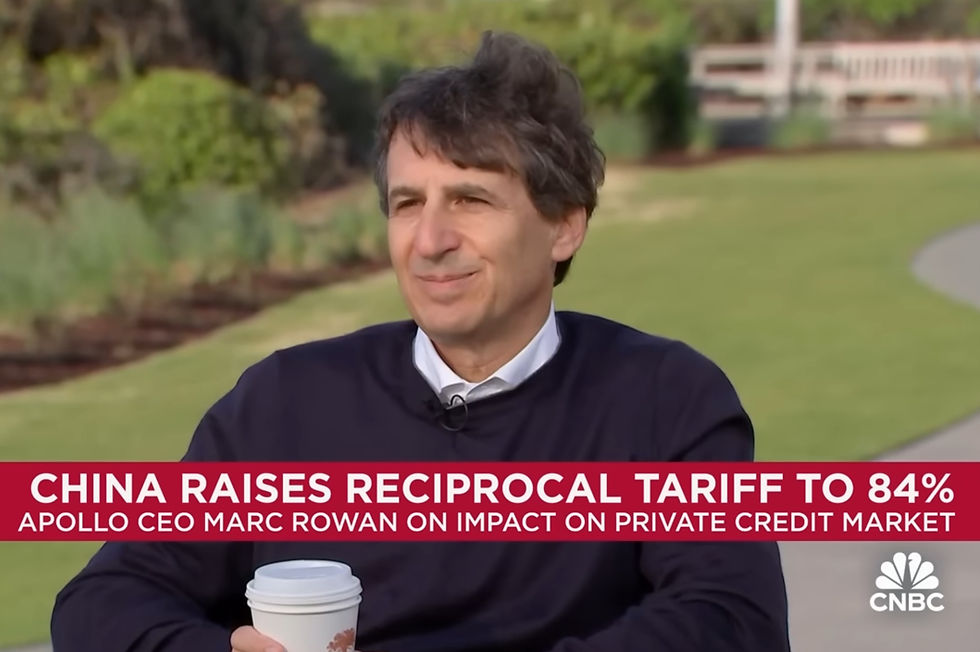Credit Markets Recalibrate After Tariff Shock
- Apr 12, 2025
- 2 min read
In Brief: Robert Bittencourt, partner and co-head of Opportunistic Credit at Apollo, shared his frontline perspective on how the "Liberation Day" tariffs are reshaping credit markets in an recent podcast with Apollo's chief economist Torsten Slok. Bittencourt detailed how President Trump's sudden imposition of a broad tariff regime—culminating in a 125% rate on Chinese imports—blindsided investors who had expected more modest, targeted measures. While some tariffs have been reduced to 10% following a 90-day pause, the lingering uncertainty has created distinct winners and losers in credit markets, with domestic-focused sectors showing resilience while import-dependent businesses face significant pressure.
Big Picture Drivers:
Unexpected severity: 18% average tariff rate versus expected 8-11%
Compressed timeline: Three-day implementation window shocked supply chains
China targeting: 125% tariff remains in place despite other reversals
Headline dependency: Market movements now driven by tweets and policy rumors
Key Topics Covered:
Market bifurcation: Flight to quality separating winners from losers
Sector impact: Supply chain exposure determining credit performance
Recession risk: Tariff uncertainty affecting corporate and consumer confidence
Private credit opportunity: Market volatility accelerating alternative financing
Key Insights:
Supply chain vulnerability: Companies with 70-90% reliance on Chinese imports face crisis
Retail exposure: Consumer goods companies experiencing 10-15 point price drops
Safe havens: Cable, telecom, healthcare, and software businesses weathering storm
Second-order effects: Treasury market disruption and currency volatility emerging risks
By The Numbers:
340 to 500 basis points: High-yield spread expansion over five trading days
1,100 basis points: Single-day equity market swing on tariff pause announcement
200+ basis points: Spread widening in CCC-rated bonds, the most vulnerable segment
Memorable Quotes:
"I don't think either the equity or the credit markets expected a policy that was so extreme. They were just caught off guard." - Robert Bittencourt
"We got an 1,100 basis point move in the equity indexes during the day... driven by a tweet, essentially. So, I think that underscores how headline driven the market is." - Robert Bittencourt
"The longer this policy uncertainty continues, even if we see further de-escalation in the trade policy, I do think it could have negative implications to the economic outlook." - Robert Bittencourt
The Wrap: While credit markets have stabilized somewhat after the initial Liberation Day shock, Bittencourt warns that fundamental damage may already be done to economic confidence. Investors seeking shelter should focus on domestic-oriented businesses with recession-resistant models, while monitoring negotiations with major trading partners—especially China—for signs of escalation or resolution. Private credit markets may emerge as winners amid the chaos, with companies increasingly seeking flexible financing solutions during this period of syndicated market volatility.



Comments